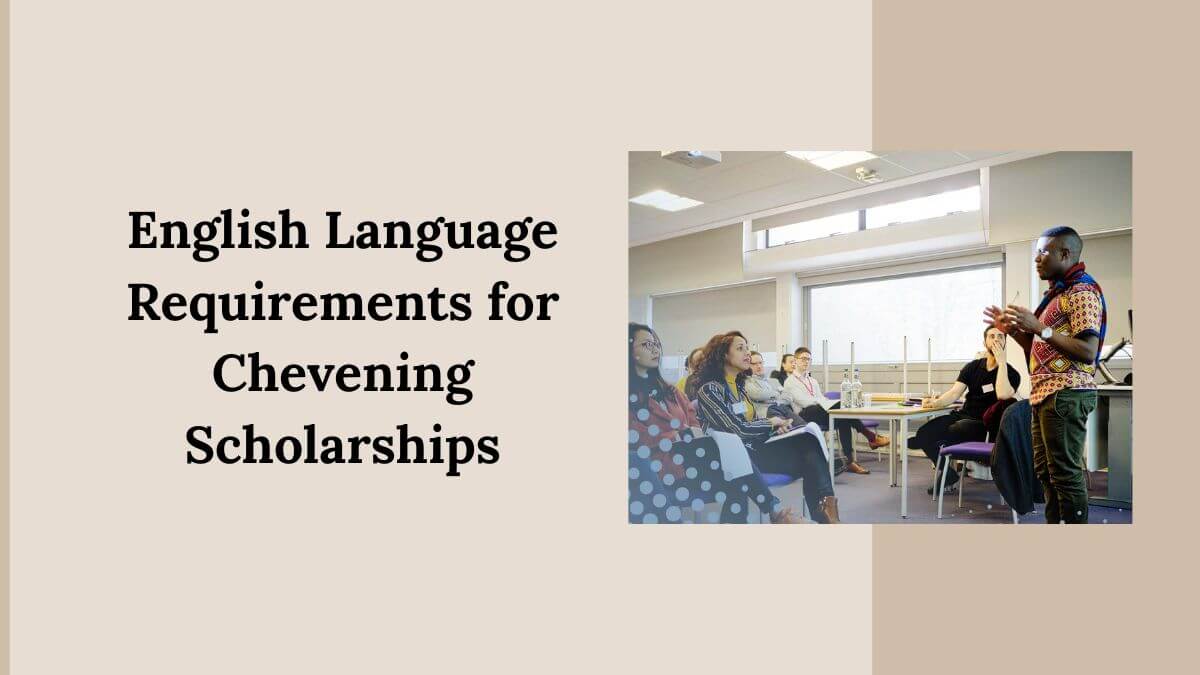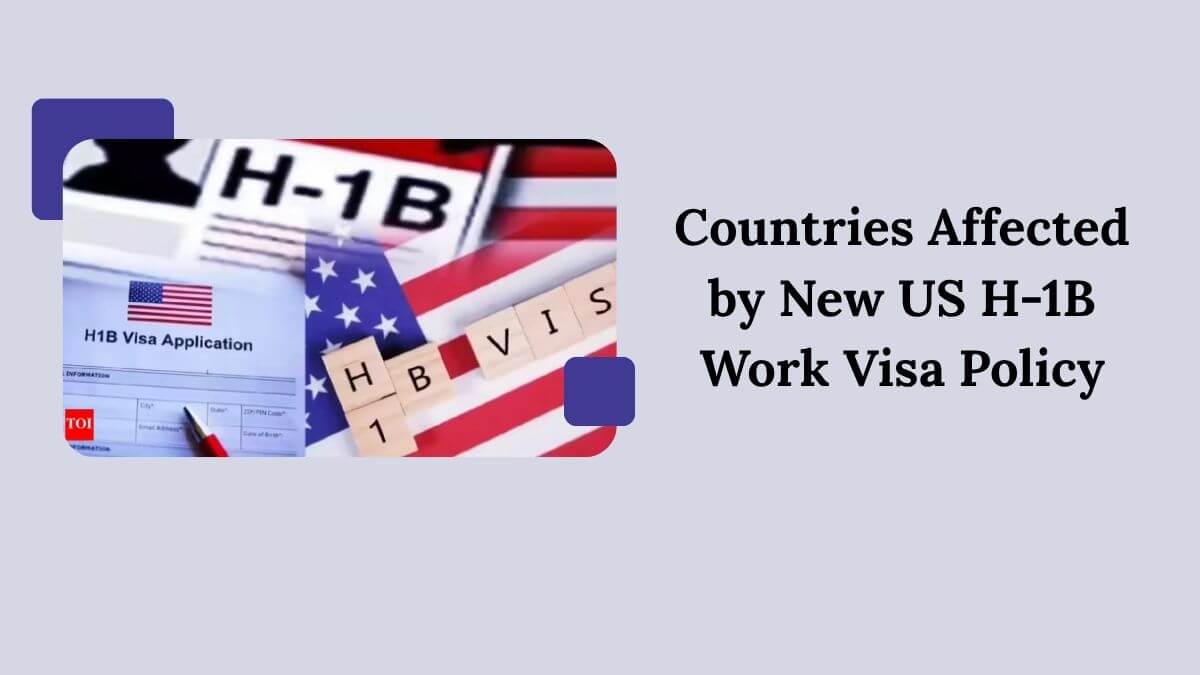English Language Requirements for Chevening Scholarships

Are you an ambitious, high-achieving student ready to fight for the UK’s most prestigious fully funded scholarship in 2026? If so, you may be wondering whether you need an IELTS or TOEFL score.
Some of the smartest and most capable future leaders miss out on the Chevening chance every year. It’s not because they are bad at school or don’t have leadership potential; it’s because they didn’t understand the English language requirements.
If you like to be organized, ready, and ahead of the competition, this is the definitive, no-nonsense, insight-packed guide to the English language rules for the 2026–27 Chevening Scholarships and Fellowships. It will make sure that your language skills never get in the way of your place in the UK’s top academic and leadership network.
Why This Matters?
Chevening Scholarships and Fellowships are more than just money; they give people access to the UK’s top-notch education, professional networks, and chances to change their careers.
But here’s the catch: how well you speak English could be the secret factor that makes or breaks your chances.
Chevening Scholarships: No Test Score… But a Hidden Barrier
Chevening no longer has a separate English language requirement as of 2020. You no longer need to send in your IELTS, TOEFL, or PTE scores as part of your Chevening application.
It sounds simple, right? Not so quickly.
A lot of smart applicants forget this: Chevening won’t ask for a test score, but your UK university almost certainly will. You can’t get the unconditional offer you need without meeting that standard. This is a must if you want Chevening funding.
That offer must be in your hands by 17:00 BST on July 9, 2026, for the 2026–2027 term. There is no way to get into Chevening if you can’t meet the English requirements. It doesn’t matter how good your application is in other ways.
Check Also: New Zealand Study Visa Changes in – Check Here
English Proficiency Requirements at UK Universities for Chevening:
Let’s be clear: your chosen UK university will still require a test score, even if Chevening doesn’t. This is where many otherwise great applicants fail.
If you want to get a Chevening Scholarship, most universities in the UK will look for:
- For IELTS Academic, you need an overall score of 6.5 and no band score lower than 5.5–6.0.
- TOEFL iBT: Score of 90 or more overall.
- 62 or higher on the PTE Academic test.
- Cambridge C1 Advanced or an award that is the same or better.
These standards are not suggestions; they are the ones who decide if you can get into a UK master’s program and, by extension, if you can get Chevening funds.
Benefits of Chevening Scholarships:
- Full Financial Support: Pays for tuition, housing, food, travel, and visa fees, so foreign students don’t have to worry about money.
- Get into top universities in the UK: Get a degree from one of the world’s most prestigious universities that is accepted all over the world.
- Networking for professionals: Join a strong global group of over 55,000 Chevening graduates, which includes business leaders and opinion leaders from all fields.
- Career Advancement: Get ahead in your career by learning new skills, traveling, and becoming a better leader.
- Cultural Exchange: Live like a local in the UK, learn about its rich culture, and meet people from different cultures.
- Leadership Development: The program’s main goal is to train future leaders who will make their home countries better places to live.
- Global Recognition: Being a Chevening Scholar is an honor that can help your career and give you access to opportunities around the world.
- Support after studying: When students go back home, they can still use the Chevening network to find job opportunities and a mentor.
What About Waivers?
If any of the following are true, you might not have to take the test:
- You already have a degree that was taught in English only.
- You are from a place where most people speak English.
- You use English every day for work or school and have a lot of experience with it.
To avoid this mistake, don’t think that you will immediately get a waiver. Different universities have different rules about waivers, and not meeting the standard is one of the fastest ways to lose your unconditional offer and your Chevening funding.
Tip: Before you even start your Chevening application, check with the university you want to attend to make sure they have exact English requirements. This small step can save you months of stress later.
Chevening Fellowships: A Case-by-Case Story
The Chevening Fellowships are short-term, high-level professional programs that cover a wide range of topics, from policy and innovation to leadership and government. There is no one level of English that all groups need.
Instead:
- Some grants need official proof, like an IELTS, TOEFL, or other test.
- Others judge your language skills based on your work history and how well you do in interviews.
In the end, you should look at the fellowship page on the Chevening website to get all the information you need.
Your 5-Step Action Plan for Chevening 2026:
- Step 1 – Choose Your Universities or Fellowship
- Do not wait until the very last second. Do some research right now and make a short list of the UK universities that offer grants or fellowships.
- Step 2 – Read the Fine Print
- Find their English language standards. Usually, you can find them on the course page under “Entry Requirements.”
- Step 3 – Plan Your Test Date
- If you need a score, try to get it by March or April 2026, so you have time to take it again if you need to.
- Step 4 – Secure the Unconditional Offer
- Make sure your university gets your test grades (or proof that you didn’t have to take the test) by July 9, 2026.
- Step 5 – Keep Records
- Keep certificates, papers, or other proof that you were taught in English in case they are needed.
Final Word: Don’t Let English Be the Reason You Miss Chevening
The Chevening award can make or break a career. Still, every year, very skilled applicants lose their jobs because they don’t realize how important it is to be able to speak and write English well.
You have the best plan yet in 2026. Chevening won’t reject you for missing a test score, but your university or fellowship host will if you don’t meet their requirements.
Get started early. Do what is needed. Get the deal done. Don’t give up on your dream of going to Chevening.
Frequently Asked Questions:
What language is required for Chevening Scholarship?
Many UK universities do ask for an English language test as part of an application, but Chevening does not. You will also need to be very good at English to write a good Chevening application, do well in your Chevening interview, and be able to go to the UK and study your chosen course.
What are the requirements for Chevening Scholarship?
Have an undergraduate degree that lets you join a master’s school in the UK. You must have finished your first year of college at least two years before the deadline for applications, even if you don’t have your diploma yet. But you must have your certificate with you when you go for your interview.
What is the English language proficiency exam for scholarships?
Many grant programs accept the International English Language Testing System (IELTS), which is one of the most well-known English tests in the world. You can take the test in both Academic and General Training versions, and it checks your speaking, reading, writing, and listening skills.



